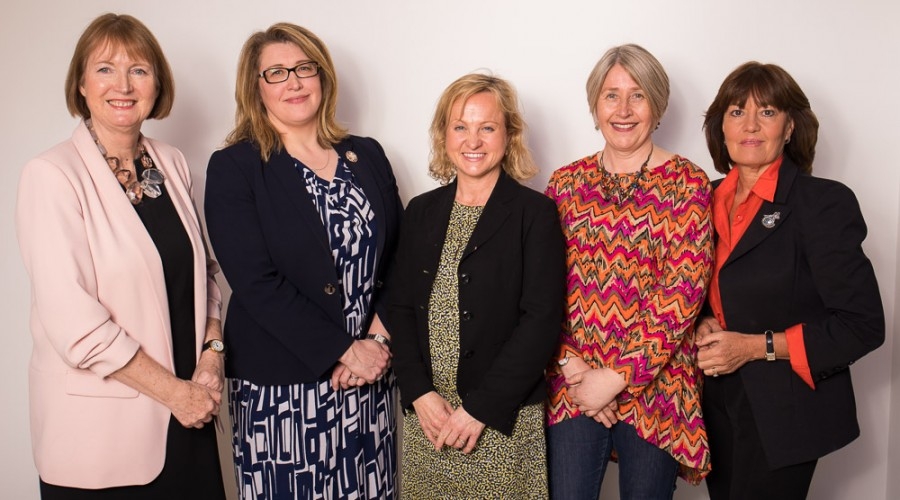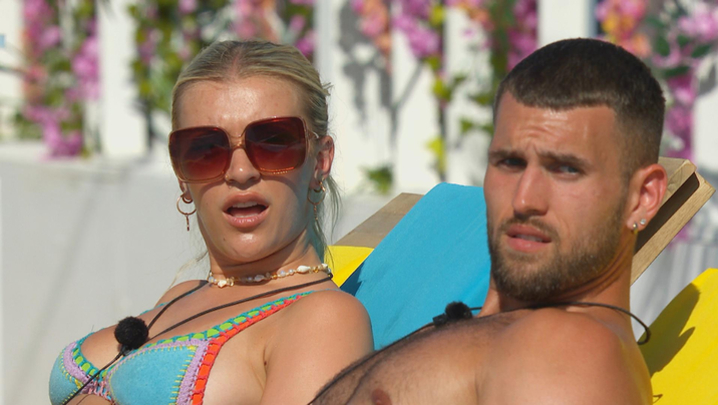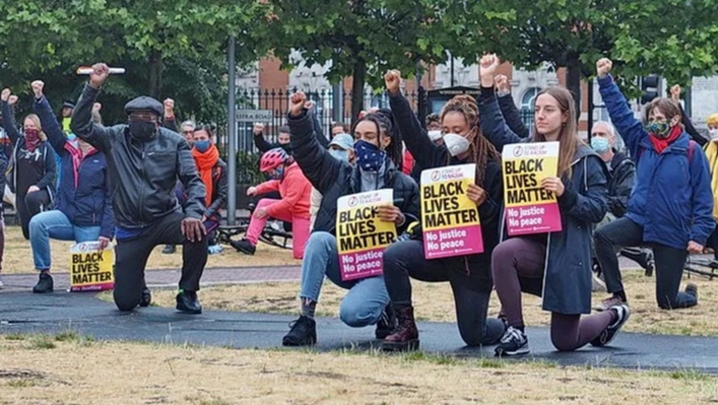Matthew Bell hears new strategies to tackle unfair pay levels in television at RTS an event
The huge disparity between the salaries of male and female on-air talent at the BBC has attracted widespread and much-deserved criticism. But recently released figures on the gender pay gap reveal that discrimination exists across television, from the top to the bottom of the industry.
Channel 4 recorded the worst (mean) average pay gap – of 28.6% – of the major UK broadcasters, followed by: UKTV at 17.9%; ITV, 16.4%; the BBC, 10.7%; Sky: 5.2%; and Channel 5, where women are, in fact, paid 2.9% more than men.
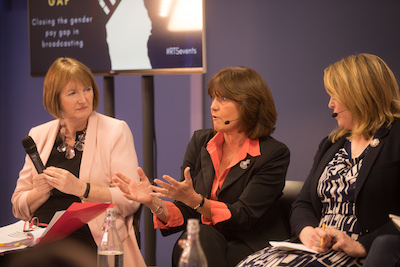
and Charlotte Sweeney OBE (Credit: Paul Hampartsoumian)
Employers with more than 250 staff were legally required to report for the first time their gender pay gaps by 4 April (30 March for public bodies) this year.
Television is doing no worse than other UK businesses, but also no better. Analysis of the figures provided by 15 broadcasters and producers by industry magazine Broadcast revealed a mean pay gap of 14.8%.
This almost mirrors the 14.5% national mean across more than 10,000 organisations that published pay-gap reports. However, the mean bonus gap of 43.7% in the TV industry is three times the national mean gap, according to the magazine.
 Last month, an RTS early-evening event in central London – boasting a panel that included the architect of the gender pay-gap legislation, Rt Hon Harriet Harman MP, – asked television some tough questions about its treatment of women.
Last month, an RTS early-evening event in central London – boasting a panel that included the architect of the gender pay-gap legislation, Rt Hon Harriet Harman MP, – asked television some tough questions about its treatment of women.
The panel also included BBC current affairs journalist Jane Corbin, who is one of the 170 members of the BBC Women group, which campaigns for an “equal, fair and transparent pay structure” at the corporation.
BBC Women, which includes much of the BBC’s big-name female talent such as Jane Garvey, Clare Balding and Sarah Montague, was set up in the wake of the publication last July of the list of presenters and journalists paid more than £150,000 by the BBC.
The list caused a furore, revealing massive discrepancies in pay between men and women doing the same jobs at the BBC. Radio 4’s Today provided one of the more egregious examples: John Humphrys’ salary was quoted as being between £600,000 and £650,000, compared with the £200,000-250,000 paid to fellow presenter Mishal Husain.
"These are stupendous sums of money, but, still, there is an equal pay principle here”
Another Today presenter, Sarah Montague, failed to make the list of £150,000-plus earners, despite serving 16 years on the programme.
Montague, who left Today at the end of March to host Radio 4’s World at One, recently revealed that she was “incandescent with rage” when she discovered the pay of her co-hosts.
“These are big sums; we are talking about very well-paid women and men, and that needs saying, especially when you’re talking to a wider public outside the media. These are stupendous sums of money, but, still, there is an equal pay principle here,” argued Corbin.
The pay list revealed “a huge difference at the BBC between the top male on-air earners and the top women, and that was genuinely shocking”, she added.
The BBC’s median gender pay gap of 9.3%, she suggested, “presented a much better picture for the BBC, a lower-than-national-average gender pay gap”. Despite this, she said, the corporation “still had not addressed those shocking discrepancies in pay”.
Turning away from the BBC, Corbin said she was also “shocked to see the Channel 4 pay gap of nearly 30% – that from an organisation that is fond of telling us about its credentials on equality and diversity”.
TV’s gender pay gap came as no surprise to Sian Kevill, the founder of factual indie Make Productions, as well as a former director of BBC World News and editor of BBC Two’s Newsnight. “Having been in the industry for many years, I’ve seen a number of reasons why you can end up with that kind of disparity,” she said, but admitted that seeing it “revealed in black and white was a real jolt to the system”.
"You only have to walk around offices to see what’s going on”
And the evidence of systemic pay discrimination continues to grow. Jane Corbin’s report for BBC One’s Panorama in March revealed that Martina Navratilova was paid 10 times less by the BBC than another ex-player, John McEnroe, to commentate at Wimbledon.
Equality adviser Charlotte Sweeney, who completed the RTS panel, pointed out that television’s pay gaps were “not as bad as I’ve seen in many sectors”. What surprised her “was the level of surprise. You only have to walk around offices to see what’s going on.”
She argued that employers had a responsibility to put fair job and pay structures in place, but added that it was also up to women to push for pay rises and fight their corner. “Both organisations and individuals need to challenge [unfairness],” she said.

Charlotte Sweeney OBE, Sian Kevill and Jane Martinson
(Credit: Paul Hampartsoumian)
The increasing casualisation of the TV industry “fragments the landscape and makes it hard for women to know if they’re being paid [fairly]”, argued Corbin. “We need more women on interview boards and at management level,” she continued. “At the BBC, there are a huge number of women at the lower journalist levels and they need to be given a chance to progress to the next level. They will start to earn more and this is how you will reduce the gender pay gap.”
The panel were in agreement that increased transparency – in other words, publishing pay rates and salaries – was crucial to closing the gender gap. But a Channel 4 HR spokeswoman in the audience said, “We’re not going to [reveal] someone’s individual pay, because that’s confidential; however, I can assure you that we are very focused on [the issue].”
"In five years’ time, there just shouldn’t be a gap”
She described the requirement on employers to publish their gender pay gap as “the most impactful piece of legislation I’ve ever seen. It’s certainly ensuring that people start paying attention, and putting in systems and structures to ensure that we don’t have an unequal-pay issue, which would clearly be illegal.”
“I’ll be interested to see what changes over the next two or three years,” said Charlotte Sweeney. “We’re focused very heavily on data, which gives us a view about what’s going on in an organisation, but I’m more interested in the narrative – what have organisations said that they are committed to doing?
“It’s about holding leaders [to account] – you said you were going to do this, so, what has actually changed?”
Sian Kevill called for TV companies to carry out “transparent pay audits”. She added: “There shouldn’t be a letout for any company – let us say that, in five years’ time, there just shouldn’t be a gap.”
Corbin warned that, in TV, “where there isn’t any money, it will cost to ensure that these [pay] imbalances don’t happen. Not all the men are going to take pay cuts: it’s not going to happen. So, the money will have to be found and that will be very difficult, particularly for the BBC and Channel 4.”
The time for discussion is over
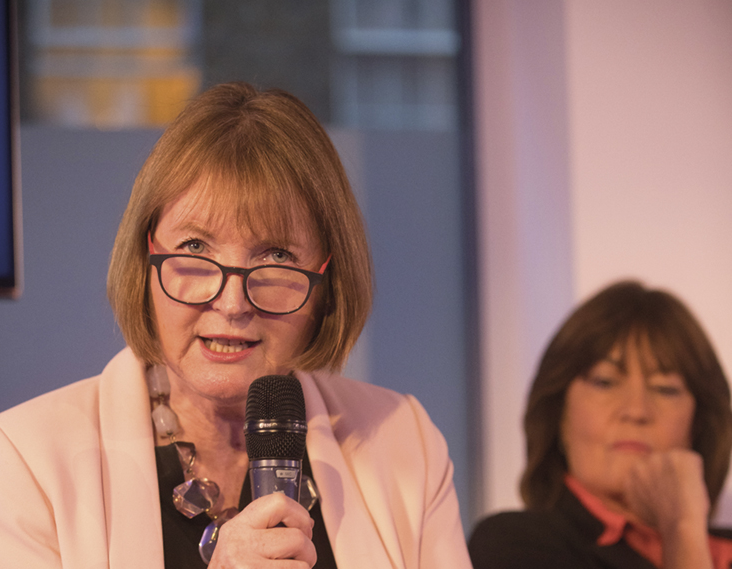
Harriet Harman was a latecomer at the RTS early-evening event, having been detained at the House of Commons for the retrospective debate on the UK Government’s decision to participate in Syrian air strikes. When she did arrive, the Labour MP brought knowledge and energy to the discussion.
The former Minister for Women and Equalities was the key architect of the Equality Act 2010, which introduced the requirement to report gender pay gaps. ‘The point about the gender pay-gap information is to keep it really simple, so that everyone in their own place of work – management, men and women – can see what the picture is,’ she explained.
‘It [establishes] a baseline that reveals, for the first time, what is actually going on. Year on year, we need to see progress and we need to have stretching targets.
‘It can’t be that the men at JP Morgan are so crackingly better than the women; it’s just pay discrimination’
‘These gaps are not there for us to be gnashing our teeth at, or for admiring those [organisations] that have the lower gaps. They are there for us to make progress towards equal pay.
‘We’re beyond discussing why there might be a pay gap. We are no longer interested in the reasons or the justification – it’s just wrong. We should be setting targets to close it.
‘The point is not for us to fume about it, but to use it as a spur for action. In a year’s time, we should look at [the new] figures and see who’s had a wake-up call and really changed things, and who’s just coasted along.’
The MP raised the 89% bonus gap between men and women reported by the bank JP Morgan in one of its units as an example of the extreme discrimination that exists in UK business. ‘You shouldn’t dignify that with a discussion,’ she said.
‘It can’t be that the men at JP Morgan are so crackingly better than the women; it’s just pay discrimination.’
She explained that the focus of the gender pay-gap legislation on hourly earnings of men and women was significant: ‘We don’t believe that an hour of a woman’s work is worth less than an hour of a man’s work because she works fewer hours or part-time.
‘When I first started out in the House of Commons, it was 97% men and only 3% women. The men used to say that no women want to be MPs – there’s a supply-side problem. We changed the rules, so that 50% of [winnable] seats had to be women and, of course, the supply was there.
All the things that are put up as obstacles will be rubbish. One guy said to me: “You metropolitan, London, middle-class women don’t understand. Northern women, they don’t want to be MPs.’’’
Question & Answer
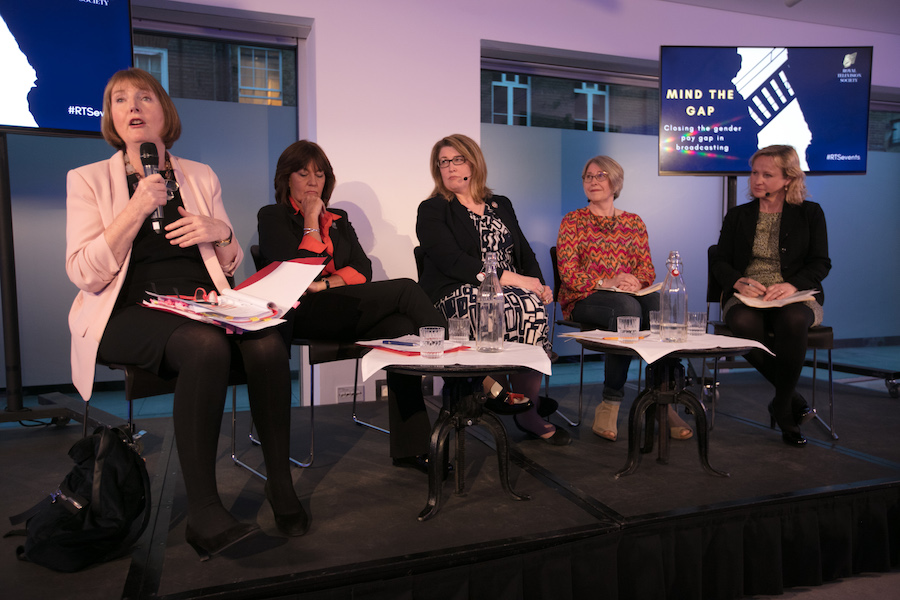
Sunjay Kakar: Is there a danger that, by focusing on inequality of pay for women, other forms of pay inequality might get forgotten?
Harriet Harman: “What about other inequalities?” is not a good question, because it implies that, somehow, we’ve got to justify having a session about gender. We don’t have to justify it – it’s a good thing to be arguing against inequality in relation to gender. The thing we have to avoid like the plague is a hierarchy of inequalities; the idea that some inequalities are more important than others – that’s a real divide-and-rule mechanism.… All struggle against inequality is really an appeal to modernity; once one thing moves, the others move as well.
Louise Ellard-Turnbull: In 2004, I was made redundant from the BBC’s entertainment department [she had been working as edit producer on the quiz show Weakest Link] on the last day of my maternity leave, citing that I was on a fixed-term contract.… [Subsequently,] getting part-time work on a production [proved] nigh-on impossible. How can [the industry] support women who want to take a little bit of time out, then work parttime in broadcast media and still… go on to provide for their family?
Sian Kevill: If you come back in and are applying for jobs, whoever is on that [recruitment] board needs to understand about your background. It’s not about [appointing] on a superficial [level] people who’ve just come out of a job. They need to understand, support and take a risk to bring somebody back who’s been out for a while and who’s got all the skills.… The industry needs to understand that there are lots of people like you out there.
Lucie Ridout, freelance series producer: How can we close the gender pay gap that exists [in the freelance sector]?
Sian Kevill: It’s incredibly difficult.… Budgets have been pared back so much that there’s absolutely no fat.… It really is down to how corporations pay indies.… I’m genuinely really worried about the casualisation of our industry and what it will mean for women.
The RTS early-evening event “Mind the gap: closing the gender pay-gap in TV”, was held at The Hospital Club in London on 16 April. It was chaired by Jane Martinson and produced by Martin Stott and Vicky Fairclough.

